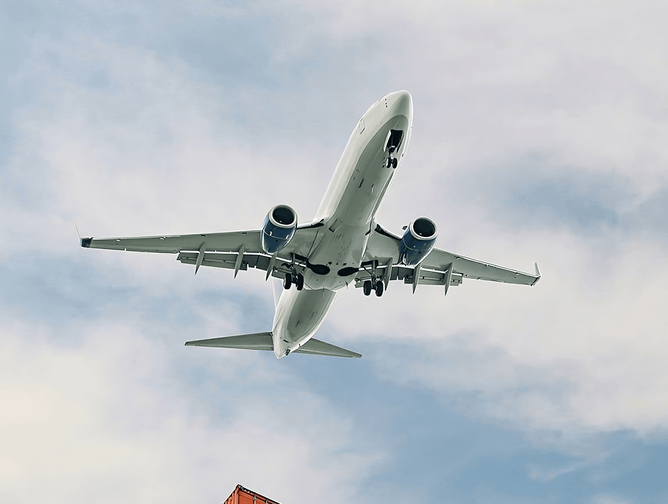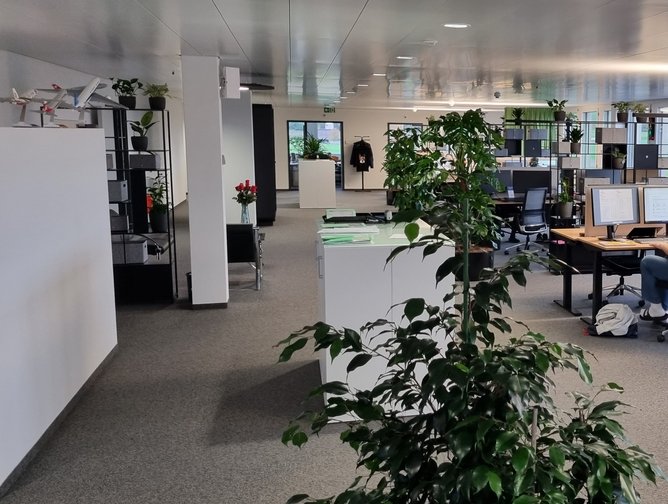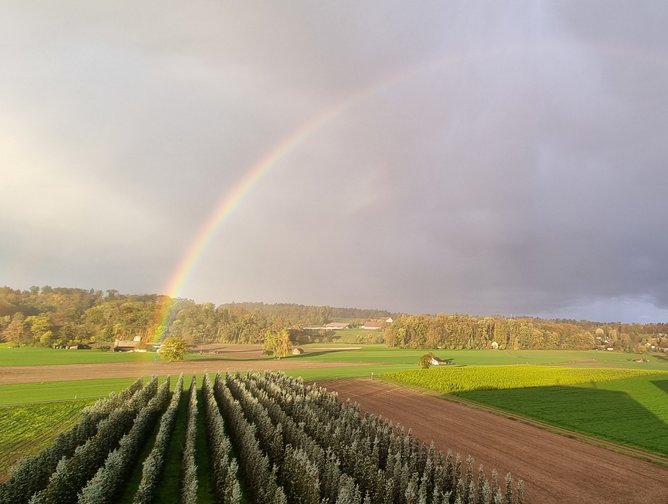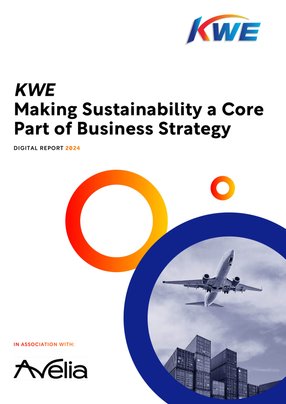KWE: Making Sustainability a Core Part of Business Strategy
Kintetsu World Express (KWE) was born in Japan and remains proud of those roots, but its exponential growth over the years means it is now very much a global entity.
Around the world, KWE is providing customers with an extensive variety of logistics services, from air and sea freight to road and rail transport, not to mention warehousing.
“Our headquarters are still in Japan and, culturally, you can still feel that,” says Frederik van de Ven, Director Sustainability at KWE. “But we’re actually very international compared to other Japanese companies.”
KWE continues to boast the upper hand over its competitors thanks to its relatively streamlined management hierarchy and straightforward approach to decision-making.
During 2023, a host of major projects were either launched, progressed or completed in the field of sustainability, which Van de Ven suspects may have taken several years at a rival company.
“We make decisions very quickly for our customers, especially on special requests,” he goes on.
“Being at the forefront of sustainability, we proudly stand out from the rest of our competitors in Asia. We have committed to the Science Based Targets initiative (SBTi), we are a working group member of Smart Freight Centre and we have a lot of green products in place for our customers, so I hope we’re becoming an example to those companies as well.”
Aligning the business with sustainability goals
As has already been indicated, KWE recently took a number of large strides forward as part of concerted efforts to run more sustainable operations.
Headlining this progress was the submission of a commitment letter to the SBTi for validation of its greenhouse gas reduction targets based on the Paris Agreement, meaning the organisation will attempt to achieve a 35% reduction in Scope 1 and 2 emissions by 2030 against a 2022 baseline figure.
As for Scope 3, the ambition is a 25% reduction over the same period, although this — as Van de Ven is keen to emphasise — will require effective collaboration with key partners across the supply chain.
He continues: “We have set up several roadmaps and action plans towards 2030, where we have defined all the projects in order to achieve the goals.
“We, as the sustainability team, cannot do everything by ourselves. That is our key goal of being here — to integrate the sustainability topic into the rest of the organisation.
“For reducing Scope 3 emissions, we have set up different products and partnerships to collaborate with our customers because Scope 3 is really more about collaboration.”
Launching a sustainability ambassadors’ network is one method which has been implemented by Van de Ven to ensure sustainability can be found high on the priority list of every employee, office and department within the company.
“This means that, in each country where we have an office and where we are active, we have an ambassador who is an expert on the topic of sustainability,” he explains.
“They help out our own people if they have questions and if they want to do some stuff for themselves, but they are also the point of contact for customers on the topic of sustainability.
“So we have very clear governance and organisation for sustainability which, at the end, comes back to the central sustainability team at Kintetsu.”
Driving a sustainable future
It goes without saying that KWE is tirelessly committed to driving a sustainable future for air, sea and road transportation.
From Van de Ven’s perspective, and given the urgency of the climate crisis, there is “only one solution”: to reduce Scope 3 emissions.
He advocates a focus on sustainable fuels for each of the aforementioned modes of transport, but acknowledges they are not yet widely available and often up to three times more expensive than traditional fuels.
Van de Ven has plenty of experience in this area having taken responsibility for setting up and rolling out the world’s first sustainable aviation fuel (SAF) programme for the cargo industry at his previous employer, Air France-KLM.
With KWE, his goal — and that of his team — is to stimulate demand and increase the market for sustainable fuels.
“That’s our main purpose,” says Van de Ven. “So, we have set up different products and programmes for our customers to join us in this purpose.
“Besides this, of course we try to put this topic on the agenda of all stakeholders concerned. That means when we are joining congresses, but also in general talks with our customers, we always try to push for the topic of sustainable fuels, even if they don't yet know anything about it.”
Collaboration is key
Crucial to achieving those emission reduction goals is establishing strong relationships with partners and suppliers, focusing on KWE’s key products and initiatives such as the use of SAF.
Initially, this might involve examining a partner’s existing Scope 3 emissions and considering what can be done to mitigate this output.
Ultimately, the goal tends to be investment in SAF, although there is acknowledgement from Van de Ven that this won’t necessarily happen immediately.
“Partnerships can start with optimising the supply chain — finding more optimal origins and destinations to transport the cargo to and then travel further with the cargo in a more sustainable way,” he continues. “But, most of the time, the ultimate solution is investing together in these sustainable fuels like SAF.
“Why we are different in the cargo industry, and what we are really focusing on, is collaboration.”
Van de Ven places extra weight on the importance of this collaborative approach, explaining that it also carries financial benefits later down the line.
“We don't always pass on the cost to the end customer, like almost all other forwarders are doing,” says KWE’s sustainability leader.
“We really look at partnerships and sustainability from a collaboration point of view, which also means something for cost.”
Shell Aviation: A crucial collaboration
One of KWE’s key collaborators is Shell Aviation, a leading global supplier of aviation fuels and lubricants with more than 100 years of experience under its belt.
While serving customers ranging from the world’s largest airlines to private pilots, Shell is in the thick of the energy transition, much like the global energy system as a whole.
“As we look to the future, we envisage an aviation sector that will transition to more sustainable solutions, and we’re working with customers to help transform demand for and supply of low-carbon energy,” comments Jai Karia, Global Sustainability Manager at Shell Aviation.
“Our capabilities as a blender, trader and transporter, together with our innovation and marketing expertise, is what we leverage to continue delivering the fuels and lubricants our customers need.”
Already, Shell Aviation is supplying SAF to customers in Europe, Asia and the US, utilising its existing fuelling network to supply low-carbon fuels to key international hubs.
Work is also being carried out to help increase SAF production. Last year, Shell Aviation signed a multi-year offtake agreement with Montana Renewables, one of the largest SAF producers in North America.
Avelia supports wider decarbonisation
Launched in 2022, Shell’s Avelia is one of the world’s first blockchain-powered digital book-and-claim solutions for scaling SAF.
The technology is used to target airlines and corporate customers, encouraging them to accelerate use of SAF for business travel.
Avelia uses blockchain to enable clear and transparent tracking of the environmental attributes of the SAF delivered into the aviation fuelling network, tracking the whole journey from production right the way through to entry.
This allows airlines and corporations to authenticate and record associated emission reductions as part of their voluntary ESG reporting.
“Use of blockchain technology here is key,” explains Karia, “as it enables the secure and transparent allocation of the environmental attributes of SAF to companies and airlines.
“This is really important as it ensures Avelia stands out as an independently verifiable solution.”
Strong momentum is already building behind Avelia, with the list of high-profile participants now including Google, Bank of America, Aon, Cathay Pacific, JetBlue, Delta, Japan Airlines and Emirates, to name a few.
Avelia pilot contributes to SFC framework
Following the initial success of Avelia in the business travel sector, Shell Aviation is keen to expand its use to support the decarbonisation of air cargo.
Last year, Shell Aviation and KWE collaborated to test and accelerate the use of Smart Freight Centre’s (SFC) Market Based Measures Accounting Framework within air freight using Avelia’s SAF book-and-claim platform, which could prove pivotal to decarbonising the sector.
This saw Shell supply SAF at Singapore Changi Airport, before allocating the Scope 3 Declaration of Environmental Attributes (DEAs) associated with the physical SAF to KWE’s shipper through the Avelia platform. As a result, KWE’s shipper was in a position to adopt SAF and reduce the Scope 3 emissions associated with its air freight activity.
Shell and KWE have worked together to test various aspects of the SAF book-and-claim guidelines, including carbon accounting and declaration.
“Looking ahead, there is a real opportunity to deploy book-and-claim SAF solutions to air freight,” says Karia.
“We will be actively exploring opportunities to support that segment further. For instance, the pilot has provided a further proof point to support the development of Smart Freight Centre’s Voluntary Market Based Measures Framework for Logistics Emissions Accounting and Reporting.
“As we continue to receive feedback, we can use this vital information to help refine and improve our customer solutions, while pushing forward the acceptance of a book-and-claim model within air freight and business travel.”
Make sure you check out the latest edition of Energy Digital Magazine and also sign up to our global conference series - Sustainability LIVE 2024
**************
Energy Digital is a BizClik brand





